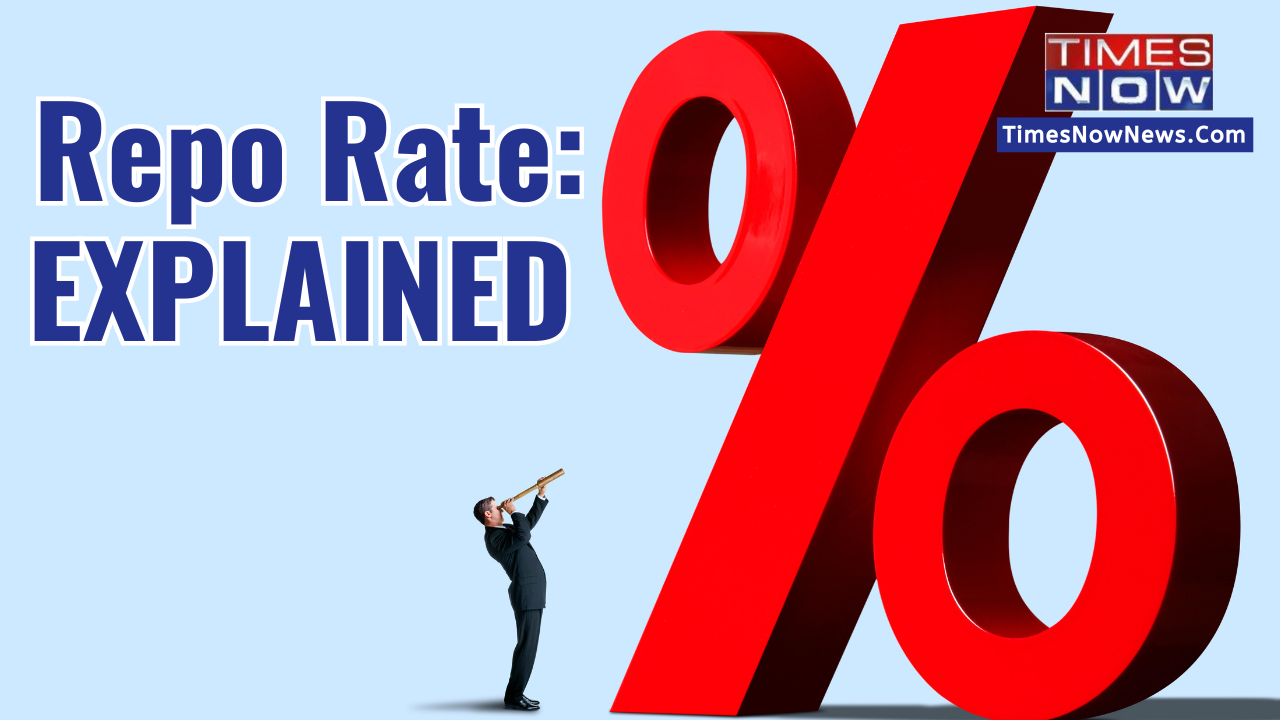What Is Repo Rate? How Does RBI's Latest Decision Affect Your EMIs? EXPLAINED
The repo rate in India refers to the rate at which the Reserve Bank of India (RBI) lends money to commercial banks when they face a shortage of funds. When the Reserve Bank of India (RBI) raises the repo rate, the interest rates charged by your bank may increase, which in turn may cause your loan's Equated Monthly Installments (EMIs) to rise.

The repo rate in India refers to the rate at which the Reserve Bank of India (RBI) lends money to commercial banks (Pic: Canva Pro)
What is repo rate: Shaktikanta Das, the Governor of the Reserve Bank of India (RBI), on Friday announced that the benchmark repo rate has been kept unchanged at 6.5 per cent for the fifth time in a row. Further, the Central Bank has also maintained status quo on the ‘withdrawal of accommodation’ policy stance, meaning that the RBI's focus is reining in the money supply in the system to control the inflation in the economy.
But what is repo rate? And how does today's development affect your home loan EMIs, fixed deposit interest rates, and personal finances? Here is an explainer with a dash of Economics 101.
What is repo rate?
The repo rate in India refers to the rate at which the Reserve Bank of India (RBI) lends money to commercial banks when they face a shortage of funds. If the repo rate is increased, borrowing from the central bank becomes more expensive for the banks. As a result, these commercial banks may raise the interest rates for their customers. This, in turn, can lead to a decrease in household spending across the country, as people have less money to spend.This tightening of finances can help control inflation. In times of recession, the RBI may decrease the repo rate to encourage consumer spending and boost liquidity in the market.
How are your EMIs affected this time?
When the Reserve Bank of India (RBI) raises the repo rate, the interest rates charged by your bank may increase, which in turn may cause your loan's Equated Monthly Installments (EMIs) to rise. Conversely, if the repo rate falls, your EMIs may decrease. However, since the repo rate has remained unchanged lately, it is unlikely that your home loan, car loan, or personal loan EMIs will increase. It's important to note that the impact of repo rate changes on your loan EMIs may vary depending on which commercial bank you are associated with.
End of Article
Subscribe to our daily Newsletter!
Videos





03:18
Amitabh Bachchan's Heartwarming Moment with Grandson Agastya Nanda in front of his Fans

02:10
Raveena Tandon addresses CONTROVERSIAL statements regarding Khushi Kapoor and Agastya Nanda in The Archies

02:27
iQOO 12 5G | Glimpse of Exciting Leaks! | Funtouch OS Android 14, Qualcomm Snapdragon 8Gen3 & More

02:15
OnePlus 12 Design & Looks | OnePlus 12 Latest Updates | OnePlus 12 Colour Available | Gadget Times

03:53
Urfi Javed Flaunts her Topless Style | Jennifer Mistry's HEARTWARIMNG note for TMKOC














